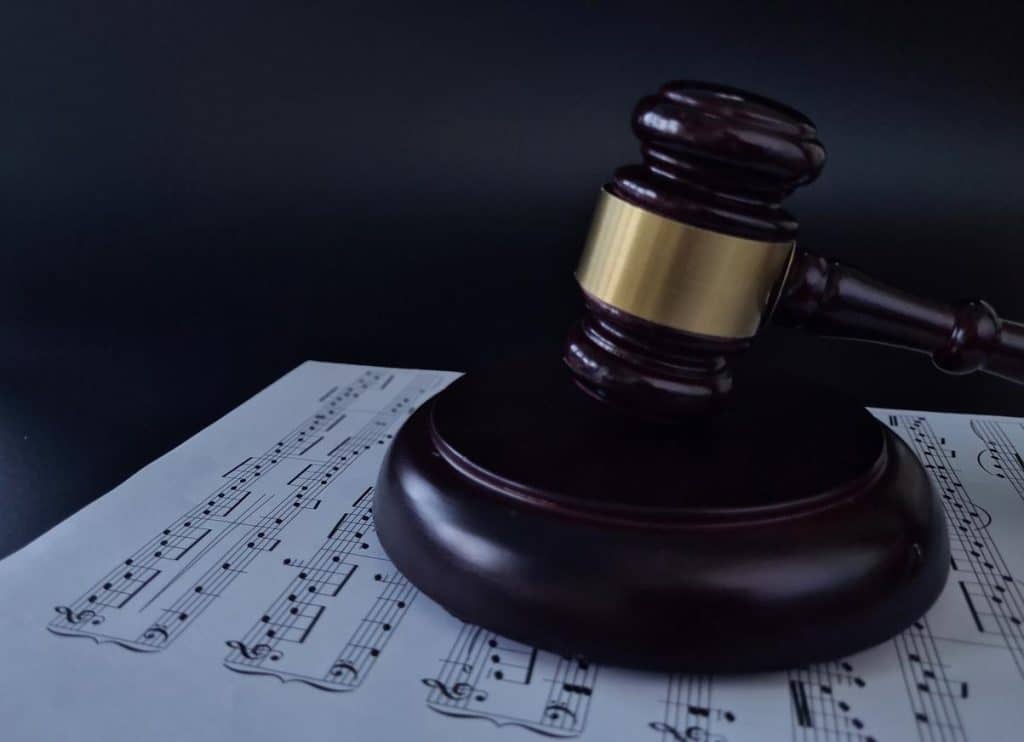In the vibrant world of music, contracts often lay the groundwork for success, yet they can also lead to some of the most notorious legal disputes. When these agreements go awry, they serve as cautionary tales for both new and established artists. From issues of copyright to disagreements with record labels, these conflicts highlight the importance of understanding the fine print.
Historically, legal battles in the music industry have led to groundbreaking decisions, affecting contracts today. Musicians like Richard Ashcroft faced legal struggles over seemingly minor elements, such as a four-second sample, showcasing the stakes involved in the industry. These cases underscore the need for artists to approach agreements with diligence and knowledge.
For creatives, learning from past disputes can be vital in safeguarding their careers. By being aware of common pitfalls in contracts and the potential for litigation, musicians can better guide their professional landscape. Professional assistance for contract reviews ensures that artists can address potential risks and protect their rights before signing agreements.
Understanding Music Contracts
Contracts in the music industry are crucial for defining the roles, rights, and obligations of all parties involved. They serve as protective measures for both artists and industry stakeholders, helping to prevent misunderstandings and legal conflicts.
Fundamentals of Music Industry Agreements
Music contracts are foundational documents ensuring clear relationships between artists, record labels, managers, and other parties. They typically cover licensing, distribution, and performance rights. Details such as exclusive rights, duration of agreement, and ownership of master recordings are critical.
There are various types of agreements, including recording contracts, management agreements, and distribution licenses. These are essential for outlining who has control over marketing, distribution, and financial aspects.
Understanding the terms of payment and compensation is vital. Royalties, which are payments made to artists for the use of their music often form a significant part of these contracts. Other key considerations include advances, recoupment, and penalties for breach of contract.
Common Terms and Sources of Conflict
Contract disputes often arise from unclear or unfair terms, leading to significant legal battles. Common issues include royalty disputes, where artists claim they have been underpaid or misinformed about earnings.
Clauses addressing the calculation and distribution of royalties can be contentious. Contractual disputes may also involve the right to terminate or renegotiate an agreement.
Rights over publishing can lead to conflicts, especially if there are disagreements over who controls songwriting credits. Additionally, failure to meet predetermined obligations can trigger allegations of contract infringement. Beneficial practices include having agreements reviewed by legal professionals to mitigate disputes. Regular communication and transparency between parties can further aid in minimizing misunderstandings.
Notable Legal Disputes and Their Impact
High-profile legal disputes in the music industry often center around control over music rights, copyright infringement, and contractual freedom. These cases have led to significant shifts in how music is purchased, distributed, and managed within the industry.
Prince and Warner Bros: Control Over Music Rights
Prince, one of the most iconic musicians of his time, entered into a contentious legal battle with Warner Bros over the ownership of his master recordings. Under his contract, Warner Bros retained the rights to his music, limiting his ability to release music freely. Frustrated by these constraints, Prince protested by changing his name to a symbol, often referred to as “The Artist Formerly Known as Prince.” This move was both a creative rebellion and a calculated effort to draw attention to the restrictions imposed by record labels.
- Year: 1990s
- Verdict: While Prince’s contract was not immediately renegotiated, his campaign for artistic autonomy fueled broader conversations in the industry about music ownership. Eventually, in 2014, years after the initial battle, Prince regained control of his master recordings from Warner Bros, setting a precedent for artists demanding more control over their work.
Metallica vs. Napster: Digital Piracy and Copyright
Metallica, one of the world’s most influential metal bands, sued Napster, a peer-to-peer file-sharing service, for facilitating the illegal distribution of their music. The case emerged after the band’s unreleased track “I Disappear” appeared on the platform without authorization. Metallica argued that Napster’s model undermined artists’ ability to profit from their creations and devalued intellectual property rights.
- Year: 2000
- Verdict: The lawsuit resulted in a settlement and the eventual shutdown of Napster. The case underscored the need for updated copyright laws in the digital era and served as a catalyst for the development of legal music-streaming platforms like Spotify and Apple Music.
Vanilla Ice vs. Queen and David Bowie: Copyright Infringement
Vanilla Ice’s hit single “Ice Ice Baby” incorporated a bass line strikingly similar to Queen and David Bowie’s classic “Under Pressure.” Initially, Vanilla Ice denied the similarity, claiming his version was distinct. However, public scrutiny and legal action by Queen and Bowie highlighted the lack of proper licensing for the borrowed musical element.
- Year: 1990
- Verdict: The case was settled out of court, with Vanilla Ice agreeing to pay royalties and provide proper credit to the original artists. This dispute emphasized the necessity of obtaining clearances for sampled music, reinforcing intellectual property laws within the music industry.
Marvin Gaye Estate vs. Robin Thicke: The Blurred Lines Case
The estate of Marvin Gaye sued Robin Thicke, Pharrell Williams, and T.I., alleging that their hit “Blurred Lines” borrowed the “feel” and stylistic elements of Gaye’s “Got to Give It Up” without permission. Unlike typical copyright cases focusing on direct note-for-note copying, this lawsuit centered on broader stylistic similarities.
- Year: 2015
- Verdict: A jury ruled in favor of the Marvin Gaye estate, awarding them $5.3 million in damages. This case set a significant precedent by broadening the interpretation of copyright infringement to include the replication of a song’s overall vibe, sparking debates about the line between inspiration and theft in music creation.
Kesha vs. Dr. Luke: Allegations and Contractual Liberty
Kesha filed a lawsuit against her producer, Dr. Luke, alleging emotional and physical abuse and seeking to terminate her contract with him. Kesha’s claims brought to light the significant power imbalance that can exist between artists and producers. The case also raised questions about how the legal system should address personal grievances within the confines of contractual agreements.
- Year: 2014–2021
- Verdict: The court ruled against Kesha’s request to break her contract due to insufficient evidence of abuse. However, the case ignited widespread public support for Kesha, inspiring the #FreeKesha movement. It also spurred industry-wide discussions about transparency in contracts and the need to protect artists from exploitative relationships.





















